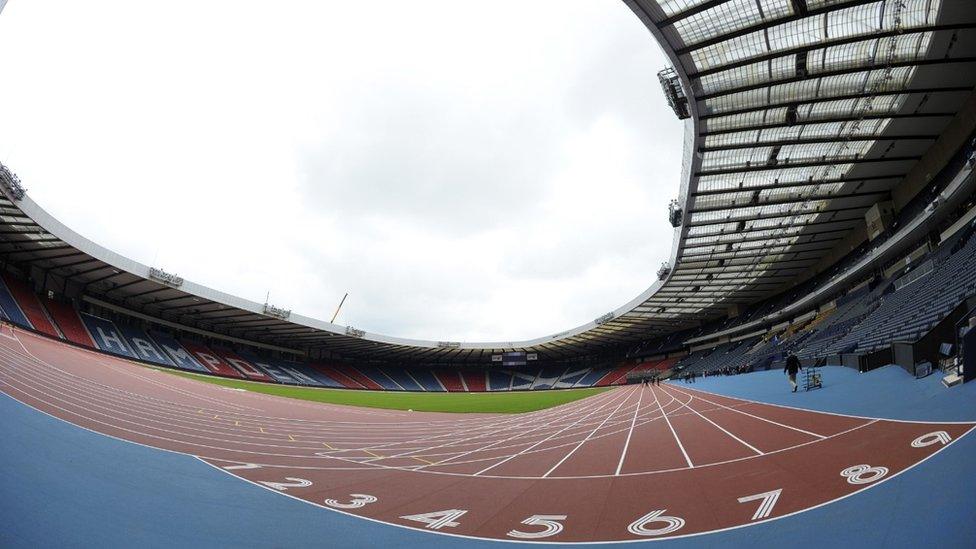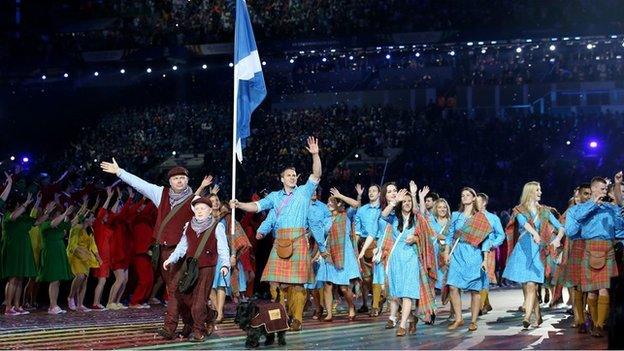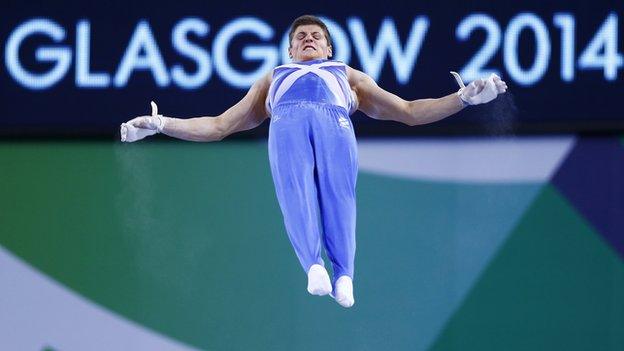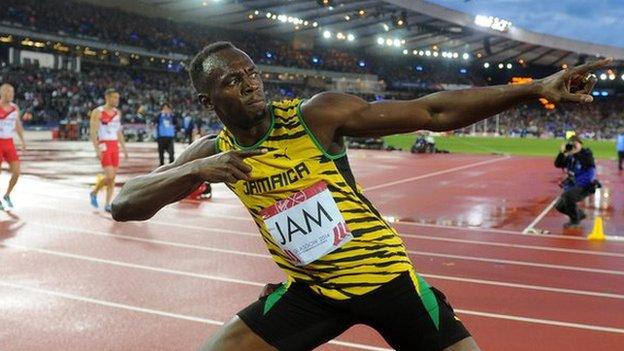Activity levels 'not boosted by Glasgow 2014 Commonwealth Games'
- Published

There has been almost no change in levels of physical activity in Scotland since the Commonwealth Games, according to new figures.
The statistics are contained in the Scottish Health Survey for 2014., external
They suggest a 1% decrease for adults and just a 1% increase for children meeting the government's recommended guidelines for exercise.
Only 4% of those questioned said they were thinking about doing more sport as a result of the Glasgow Games.
Low activity is the second biggest cause of mortality in Scotland and contributes to about 2,500 deaths each year.
'Insprire the nation'
The 2014 Commonwealth Games were held in Glasgow last summer with much made of the legacy and lasting impact the event would have on people across Scotland.
It was one of the key promises made by organisers - that Glasgow 2014 would inspire the nation to become more active.

The Commonwealth Games was staged in Glasgow last summer

Organisers of the Games promised they would have a lasting impact on the city and the country
The Scottish Health Survey - an annual snapshot of the nation's state of health - asked those taking part about the impact of the Games on their attitudes to sport and exercise.
About one in 20 adults (6%) said that they were more interested in sport and physical activity as a result of the Games, with 4% saying they were thinking about doing more physical activity.
The survey found that in 2014, 63% of adults took part in the recommended 150 minutes of moderate activity each week, compared with 64% the previous year.
Just over three quarters (76%) of children met the guidelines of 60 minutes of activity each day (that included school-based activities).

It was hoped people would be inspired to get more involved in sports after watching athletes like Usain Bolt
The health survey looked at what people see as being the main barriers to playing more sport.
Those who had not played sport in the last month gave reasons including poor health (35%), lack of time (32%), and a lack of interest (17%).
Diarmid Campbell-Jack, research director at ScotCen Social Research which carried out the survey, said: "We have only seen very small proportions of adults in Scotland claiming that the Commonwealth Games had influenced, changed their attitudes to, or increased their participation in, sport.
"We know from elsewhere in the Scottish Health Survey that poor health, a lack of time, and lack of interest are the main barriers people mention when asked why they hadn't taken part in sport recently - this suggests a wide range of issues need to continue to be considered when addressing this issue."
Prof Nanette Mutrie, director of physical activity for the Health Research Centre at Edinburgh University, said the figures were "disappointing" but that it was maybe too early to judge the impact of the Games.
She said: "We thought Scotland's approach of having a legacy at the forefront of the Commonwealth Games would have made a difference, but no country has seen an upturn in participation levels on the back of a major sporting event.
"We do have a long-term strategy in Scotland that has been in place since 2003, we have a national walking strategy and almost 100% of schools now have two hours of PE and so we may not see the benefits for the next five years."